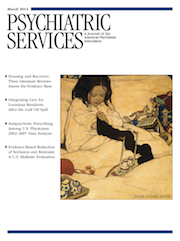STRoNG Intervention for Military Families With Young Children
Military families face unique challenges. Although many exhibit remarkable resilience in the face of hardship, a steep rise in rates of divorce, child behavior problems, and parental mental illness during and after deployment highlights the need for family support. Approximately 40% of children in military families are under age five. Separation from one parent, coupled with heightened distress of the parent left behind, places young children at risk. Reunification poses challenges as well, including the need to reestablish relationships, roles, and routines and to accommodate combat-related injuries or illness. As one father in our program shared, “He was born, and I was deployed before he was walking. And when I came back, he was standing, gripping onto (his mother’s) leg—looking at me like, ‘That’s who?’ She had to tell him, ‘That’s Daddy.’ ” Another father commented, “When I came back, it was difficult . . . trying to find that closeness and trying to find that reconnect.” Thus the challenges faced by military families during this unique period require special attention and support.
In response, we have developed and are evaluating a brief multifamily group intervention (STRoNG Military Families, funded by National Institutes of Health grant R21 HD072375-01A1) designed to enhance parenting and reduce mental health problems in military families with young children (birth to age six). STRoNG focuses particularly on National Guard and Reserve families, who often experience geographic isolation and fewer opportunities for connection than are typically available to active-duty families on military installations. The intervention offers 13 sessions (three individual family and ten multifamily meetings) to the “whole family unit,” including service members, their spouse or parenting partner, and their children. Because the intervention is supported by a manual and is brief and group based, it lends itself to dissemination and capitalizes on the community formed by military families.
STRoNG is responsive to the unique needs of military families and addresses five central pillars: social support, parenting education, self-care and stress reduction, child routines and parent-child interaction, and care connections for families. Although STRoNG provides didactic information, the emphasis is on therapeutic, experiential, hands-on, and supported learning opportunities.
Each of the five pillars is addressed within the 13 sessions. Social support is enhanced by creating a shared group experience, with opportunities for informal relationship building during mealtime and in the parenting group. Given the importance of separations and reunions in military family life, the parenting education curriculum emphasizes responsiveness and sensitivity to young children’s separation experiences. Parents are introduced to key topics in parenting and child development, and we engage them in activities designed to develop and practice skills and to reflect on interactions with their children. A key concept is helping parents understand that although deployment poses challenges for the parent-child relationship, meeting children’s needs and addressing smaller disruptions during everyday experiences are the processes by which relationships are restored and strengthened, even when bigger disruptions have occurred. Another core aspect of the curriculum is balanced parenting and discipline; we encourage and support parents as they strive to integrate strength and kindness into their everyday interactions with their children, including balanced approaches to discipline.
The self-care and stress-reduction curriculum addresses parents’ needs for hands-on strategies for reducing their own levels of stress in order to provide balanced parenting. Each group session includes hands-on practice of evidence-based stress-reduction skills, including guided breathing and mindfulness techniques. This has the added benefit of helping parents prepare for reuniting with their children in a calmer, relaxed state.
Child routines and parent-child interaction are supported by a curriculum that emphasizes safe, predictable routines, acknowledgment of goodbyes when parents leave for their session, developmentally appropriate play-based activities, and observation of and support for reunions when parents return from their group. These brief separations and reunions provide opportunities for practice, negotiating feelings about separation and return, and helping parents identify and respond to their children’s needs for support. Parents are encouraged to anticipate, observe, and reflect on these experiences, as well as to identify new ways to address their children’s feelings during separation and reunion at the next session. Individual meetings with parents are held midway through the program to provide opportunities for connecting families to care, including individualized referrals to high-quality, culturally sensitive community resources and mental health treatment when indicated.
The STRoNG Military Families program thus reflects an integrated curriculum that addresses parenting and parent mental health needs. It is often said that when one parent serves, “the whole family serves.” STRoNG, in supporting military families with young children and by including spouses, parenting partners, and children, addresses this critical public health need.



